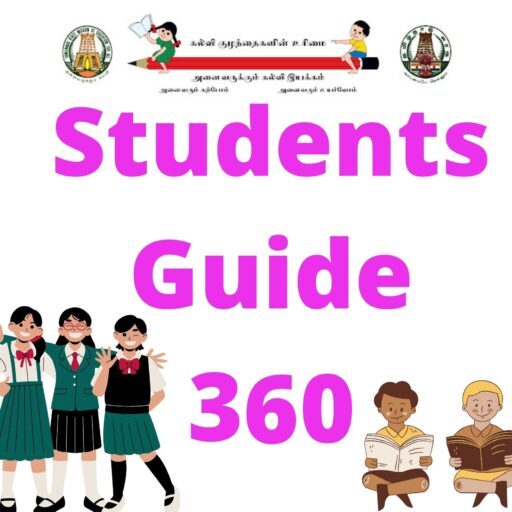6th Social Science Civics Guide Term 2 Lesson 2 The Constitution of India
6th Standard Social Science Civics Guide Term 2 Lesson.6 The Constitution of India Book Back Answers
6th Standard Social Science Term 2 Civics Lesson 2 The Constitution of India Book Back Question and answers Tamil Medium download pdf. 6th All Subject Text Books download pdf. 6th Social Science Term 1 Guide. 6th All Subject Book Back Answers. 6th Social Science Samacheer kalvi guide.

6th Social Civics Guide Term 2 Lesson 6 The Constitution of India Book back answers
I. Choose the correct answer
1. The Constitution Day is celebrated on
- January 26
- August 15
- November 26
- December 9
Ans : November 26
2. The Constituent Assembly accepted the Constitution of India in the year ___________
- 1946
- 1950
- 1947
- 1949
Ans : 1949
3. There are ___________ amendments made in the Constitution of India till 2016
- 101
- 100
- 78
- 46
Ans : 101
4. Which of the following is not a fundamental right?
- Right to freedom
- Right to equality
- Right to vote
- Right to education
Ans : Right to vote
5. An Indian citizen has the right to vote at
- 14 years
- 18 years
- 16 years
- 21 years
Ans : 18 years
II. Fill in the blanks.
- _________ was selected as the chairman of the Constituent AssemblyAns : Dr. Rajendra prasad
- The farther of the Constitution of India is _________Ans : Dr. B.R Ambedkar
- ____________ protects our fundamental rightsAns : Constitution
- The Constitution of India came into existence on _____________Ans : 26th january
III. Choose the Correct Option
- Independence Day – November 26
- Republic Day – April 1
- Constitutional Day of India – August 15
- Right to Education – January 26
Ans : 1 – C, 2 – D, 3 – A, 4 – B
IV. Answer the questions given tinder the caption Constituent Assembly
1. In which year was the Constituent Assembly formed?
- Constituent Assembly was formed in the year 1946.
2. How many members were in the Drafting Committee?
- Drafting Committee was formed with eight members with Dr. B.R. Ambedkar as its chairman.
3. How many women were part of the Constituent Assembly?
- There were fifteen women participants in the constituent Assembly.
4. When was the Constitution of India completed?
- The Constitution of India was completed on 26th November 1949.
V. Answer the following questions:
1. Why was January 26 adopted as the Republic Day?
- When the Congress met at Lahore in 1929, the members of the Congress unofficially declared the same day as the Day of Poorna Swaraj or the Day of complete self governance.
- The next year, 26th January 1930 was celebrated as the Independence Day. That day has been observed as our Republic Day.”
2. What is the Constitution of India?
- The Constitution is an authentic document containing the basic ideas, principles and laws of a country.
- It also defines the rights and duties of citizens.
3. List out the special features of the Constitution of India.
- The preface of the constitution is the Preamble.
- According to it, India is a Sovereign, socialist, Secular democratic republic.
- The constitution has granted the people the right to rule. Sovereignty refers to the ultimate power of the country.
- The term secular refers to freedom of worship.
- The Constitution provides a Parliamentary form of Government, both at the centre
4. What are the fundamental rights?
“Fundamental rights are the basic human rights of all citizens”. They are
- Right to Equality
- Right to Freedom
- Right against exploitation
- Right of Freedom of religion
- Cultural and Educational rights
- Right to Constitutional Remedies
5. List out the fundamental duties that you would like to fulfill
- Respecting the National flag and National Anthem.
- Respect and protect the Constitution.
- Readiness to serve our country if need arises.
- Treating everyone as brothers and sisters
- Avoid violence.
- Protect government property etc.
6. What is Preamble?
- The preface of the Constitution is the Preamble.
7. What do you understand by Liberty, Equality and Fraternity?
- The preamble of Indian constitution clearly says that
- To achieve Justice-social, economic and political
- Liberty of thought, expression, belief, faith and worship.
- Equality of states and opportunity.
- Fraternity assuring the dignity of the individual and the unity and integrity of the nation.
8. Define: Sovereign
- An Independent country not subject to any external power or influence.






